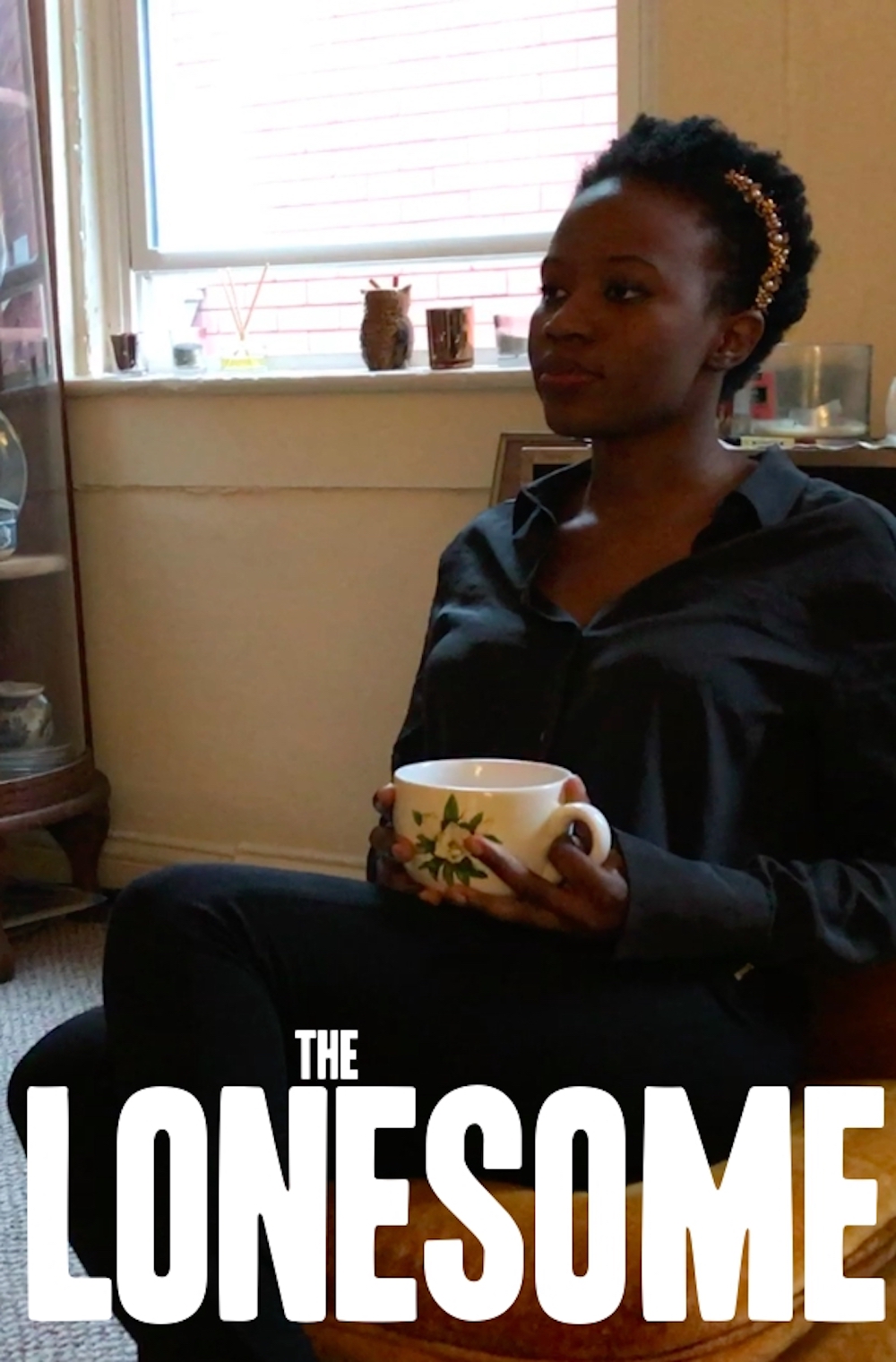
Short Film Review “The Lonesome”
WATCH THE FILM HERE
First, the Recap:
The sense of remoteness, being distant and apart, the feeling that despite the world all around us, there is still an awareness of loneliness. When the desire occurs to have solace yet find ourselves in the midst of strangers or awkward situations, how do we cope? How do we find peace? For one twentysomething young woman named Joi (Joi Itapson), it will supposedly come from a birthday party arranged by her roommate Caity (Caity Jones) at their small suburban apartment. Yet, despite the friendly banter between them, Joi seems hesitant, unsure. Caity assures her the evening should be fun, even as she also reveals the fact she’s made other plans for later, much to Joi’s support yet mild disconcert.
As the first guests, Trace (Trace Hazelbaker) and his girlfriend Tesla (Tesla Renee Gray), arrive, the mood and tone of the party seem to get established immediately–uncomfortable and mildly tense. Conversations are sporadic and random as Joi tries to piece together how everyone knows each other, but the atmosphere remains separated. When Joi’s friend Ashton (Ashton Burch) shows up, however, she relaxes a bit in seeing a friendly face, but even after those moments, things go right back to reserved and uneasy, with everyone lost in their own little world. The eventual entrance of Ashton’s friend Jessica (Jessica Kilbourne) adds a final bit of troublesome and humiliating circumstance to events with her having a past with Trace. It soon becomes evident to Joi a happy birthday may not happen.
Next, my Mind:
Cincinnati, Ohio-based indie writer/director Douglas Reese delivers this 47-minute short that assuredly defines the essence of his intentional reputation as a “no-budget” filmmaker, utilizing sparse, utilitarian settings and uncomplicated, down-to-earth characters to reflect his narrative’s goal in illustrating the effects of social isolation, uncertainty, reliving past hurts, and the desperation of missing those who we’ve lost companionship with. Now, some viewers might honestly feel a tad weary or have a lingering sense of tediousness in the highly understated manner in which this story is presented, but if you really step back and look at the situation given as it is, one might actually find a relatable quality to it, even recalling their own social experiences with having to be stuck in the midst of strangers and not being able to truly feel a part of it all, even at your own hosted event. At times this did feel slow, but look beyond the surface for purpose.
While focused primarily on the character of Joi, this is truly a full-on ensemble piece, with every actor providing their specific role that makes up the greater whole, rather than there being a couple of main stars with supporting parts. The other key here to note would be the natural, casual nuances that each brings, all of which adds to the undercurrent of self-consciousness and discomfort present at the party. Itapson’s Joi is a study in someone with a calm demeanor outside, but inner emotional turbulence within, only seen near the film’s finale. Jones’ Caity is the prototypical roommate, who greatly supports her friend, yet has decided to ditch the party at some point for, perhaps, a better option with the show she’s attending? Hazelbaker’s Trace and Gray’s Tesla we can tell each have their own issues, whether between themselves or other outside factors, mostly unspoken and greatly tentative, especially with Tesla.
Burch’s Ashton is the seemingly most carefree of the group, open and vocal, but also agitated with his friend Jessica, played by Kilbourne, who’s more than a little unsettled, nervous, and then flat out angry at the presence of an ex in Trace, which makes an already anxious situation even more edgy and disquieting for everyone else. It’s all acted decently, with enough effect to appreciate the design of the story. An additional appearance is made by Michaela Beekman during the finale that in itself lends one last emotional punch to the greater themes being explored here. In total, “The Lonesome” is a worthy example of independent filmmaking at its low to no-budget core that really should be treated as exactly that, reflecting the ongoing will of these filmmakers to show the world what they can do, taking the critique/criticism offered, and therefore striving to simply create what they love, ideally improving and growing as they do.
As always, this is all for your consideration and comment. Until next time, thank you for reading!




